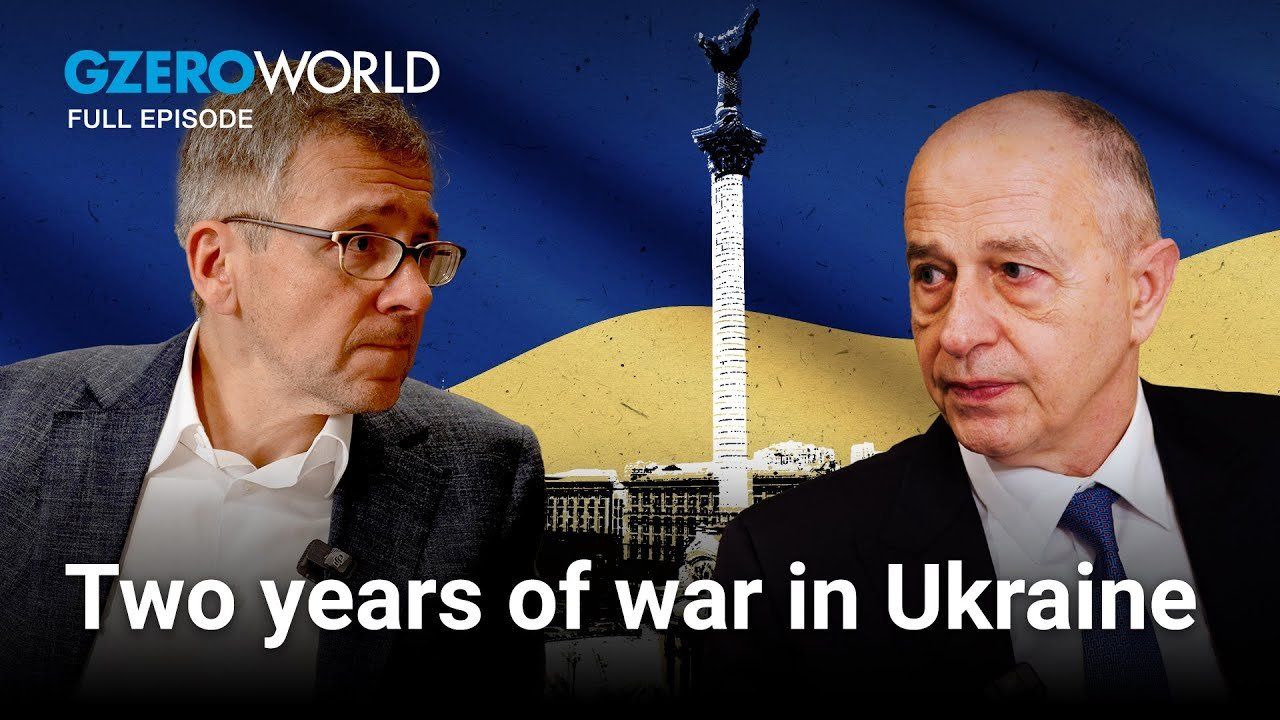GZERO World with Ian Bremmer
Can Ukraine win the war?

Can Ukraine win the war? | GZERO World with Ian Bremmer

Are NATO allies as united in their support for Kyiv as they were when Russia began its invasion of Ukraine two years ago? That was the question at the top of everyone’s minds at the Munich Security Conference, where world leaders gathered to discuss the biggest challenges to global security. On GZERO World, Ian Bremmer sat down with Deputy Secretary General Mirceǎ Geoana on the sidelines of Munich to discuss the ongoing war in Ukraine and what the conflict means for the future of the NATO alliance.
“Ukraine is more than Ukraine, and Ukraine is more than European security,” Geoanǎ explains, “Ukraine is an indicator of the willingness and the capacity of the West to be able to cope with challenges coming from China or anywhere else.”
Geoanǎ also called the recent death of Alexei Navalny a “wake-up call” for the West and challenged President Trump’s recent comments about allowing Russia to invade NATO countries that don’t meet the target of spending 2% of GDP on defense. While he admits Europe could do better, he points out that NATO allies are well above the 2% target on aggregate due to heightened security concerns in former Soviet countries and the Baltics.
“In the end, this alliance, [which will celebrate] 75 years in the next few weeks, will be as indispensable to America and to all of us like it’s been since the inception,” Geoanǎ says.
Ian Bremmer sits down with former US Ambassador to NATO Ivo Daalder to unpack a historic shift in the transatlantic alliance: Europe is preparing to defend itself without its American safety net.
Think you know what's going on around the world? Here's your chance to prove it.
Argentina, Armenia, Belarus, Egypt, Indonesia, Jordan, Pakistan, Paraguay, Vietnam – to name only a few.
A poster featuring Andrew Mountbatten-Windsor, formerly known as Prince Andrew, is installed on a sign leading to the parking area of the Sandringham Estate in Wolferton, as pressure builds on him to give evidence after the U.S. Justice Department released more records tied to the late financier and convicted sex offender Jeffrey Epstein, in Norfolk, Britain, February 5, 2026.
British police arrested former Prince Andrew Mountbatten-Windsor today over allegations that in 2010, when he was a UK trade envoy, he shared confidential government documents with convicted sex offender Jeffrey Epstein.